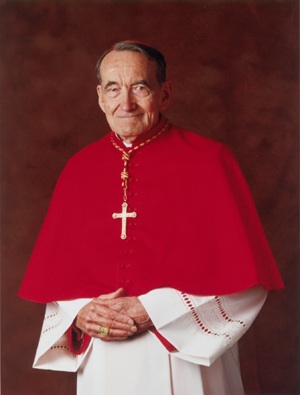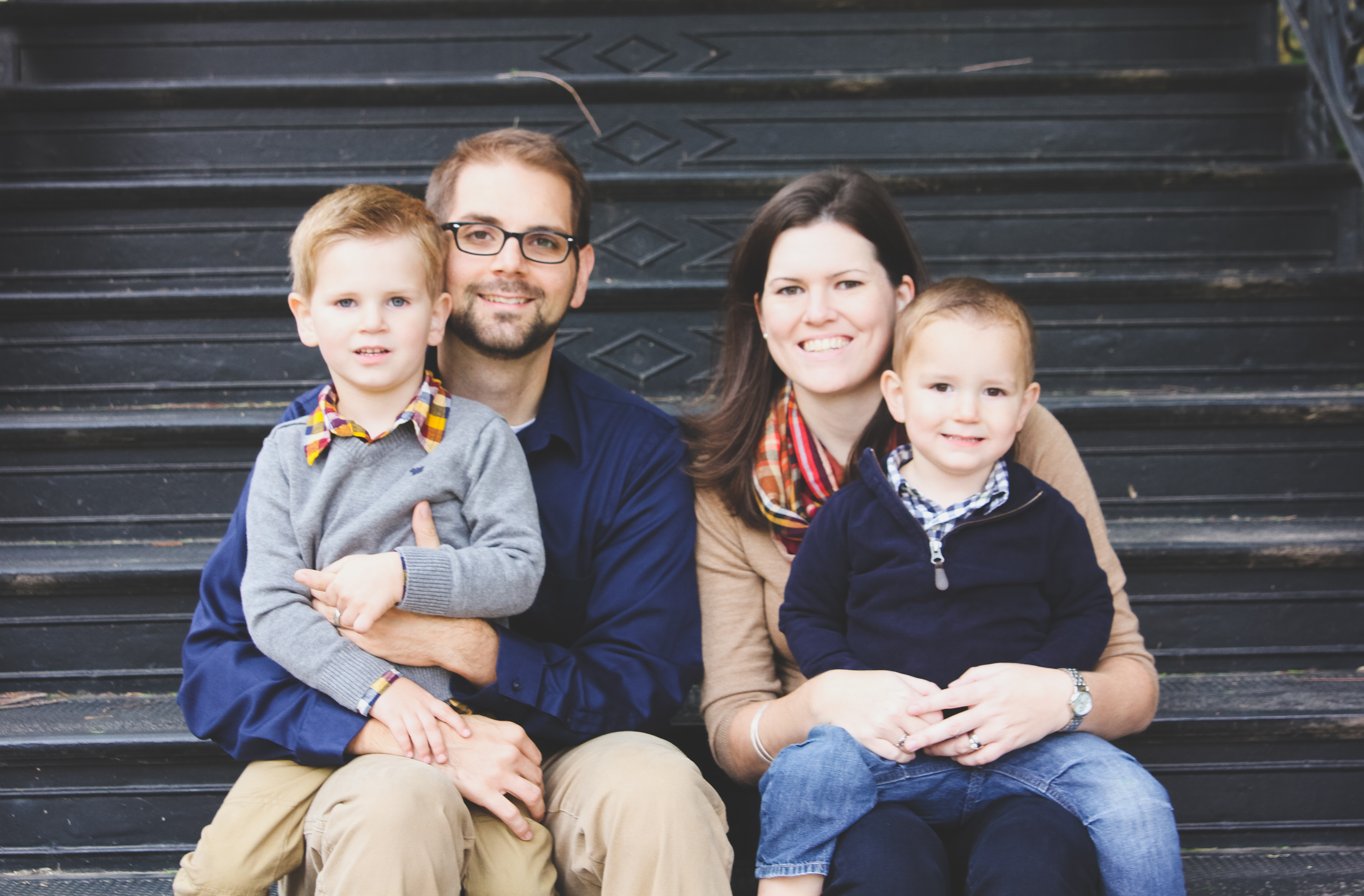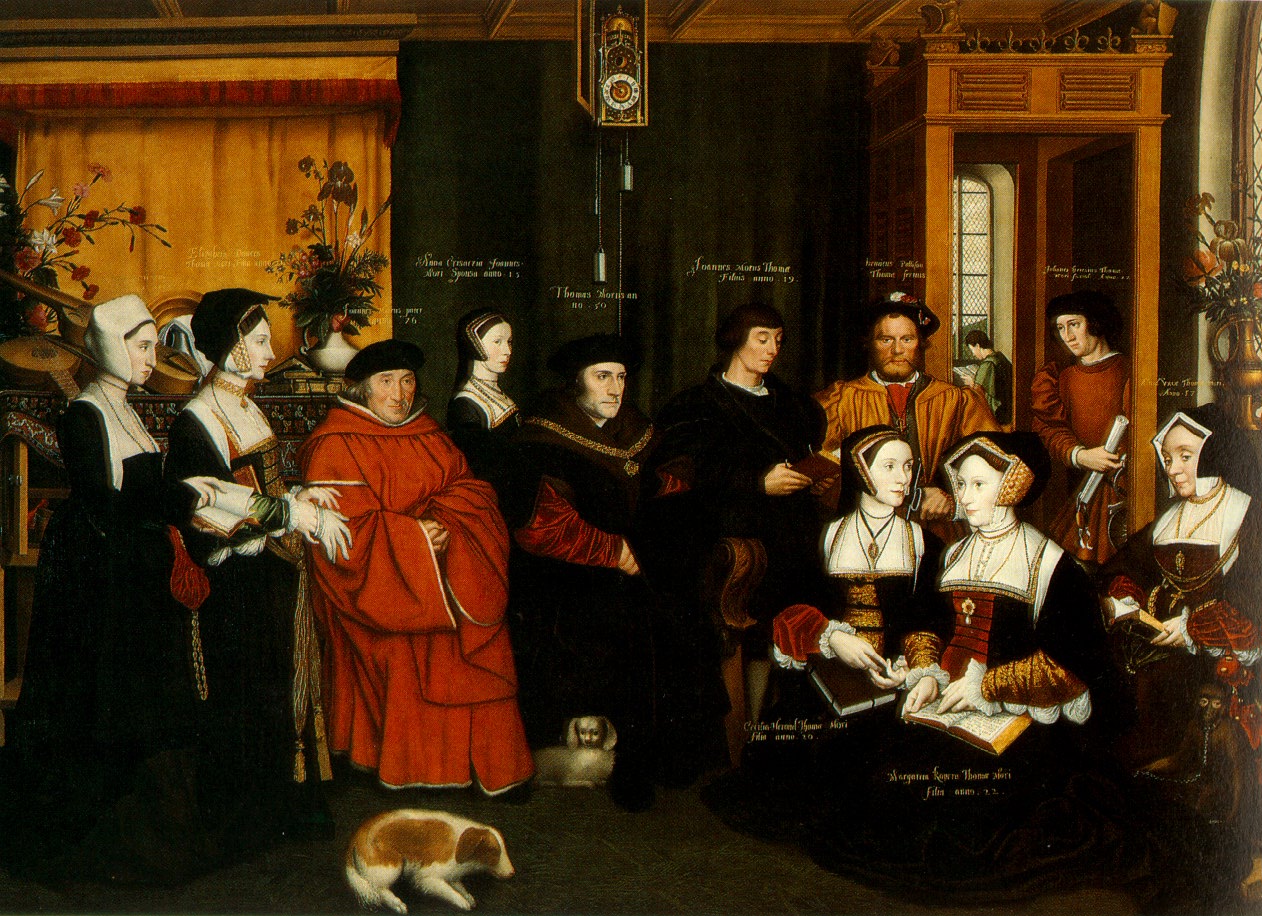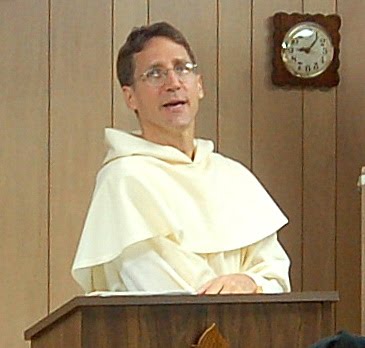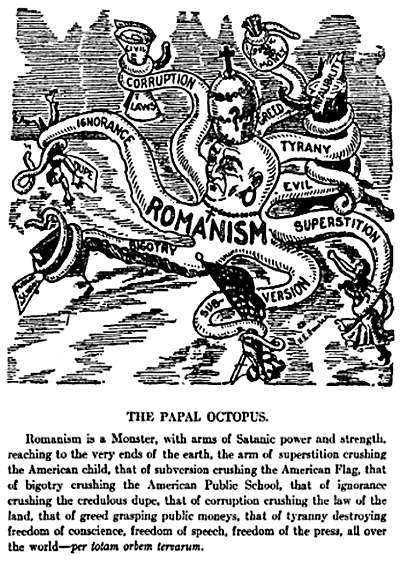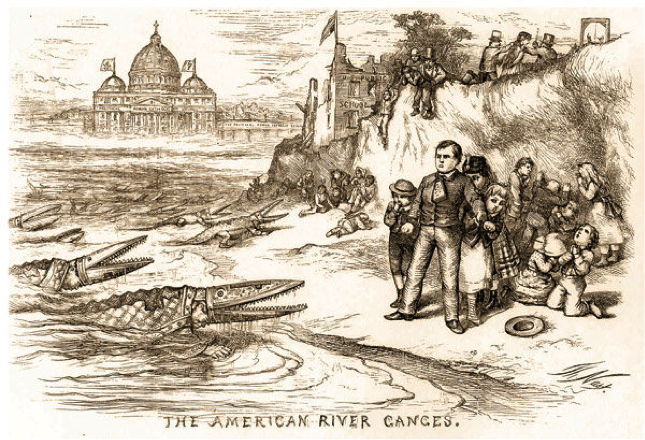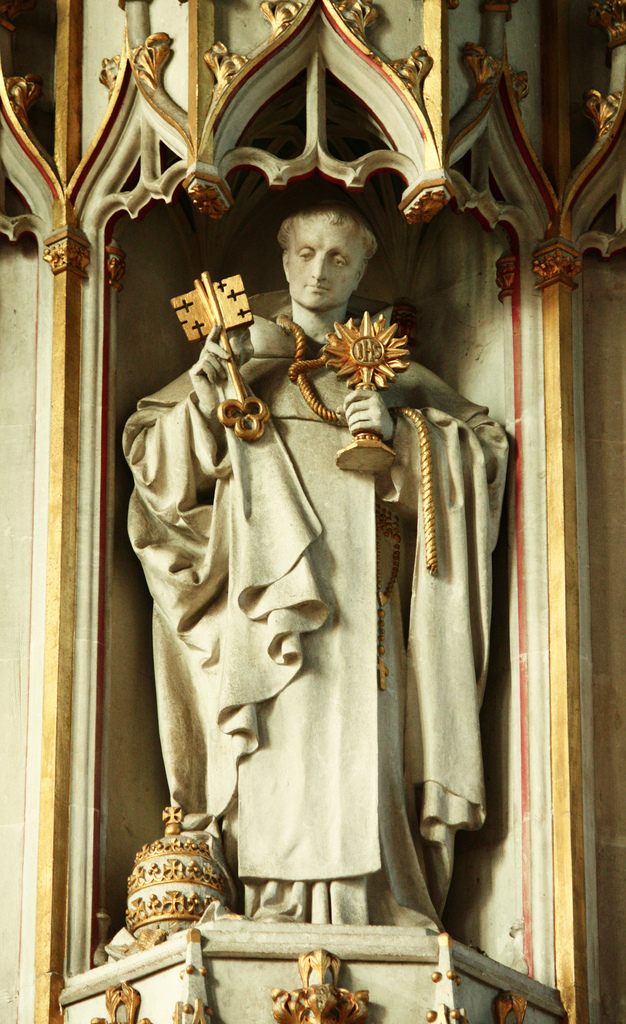-by Avery Cardinal Dulles, SJ, (1918 – 2008), Dulles was raised a Presbyterian but had become an agnostic by the time he was a student at Harvard. Subsequent to his conversion to Catholicism, he held the Laurence J. McGinley Chair in Religion and Society at Fordham University. This essay is adapted from the Laurence J. McGinley Lecture delivered on November 7, 2007.
“Nothing is more striking in the New Testament than the confidence with which it proclaims the saving power of belief in Christ. Almost every page confronts us with a decision of eternal consequence: Will we follow Christ or the rulers of this world? The gospel is, according to Paul, “the power of God for salvation to everyone who has faith” (Rom. 1:16). The apostles and their associates are convinced that in Jesus they have encountered the Lord of Life and that He has brought them into the way that leads to everlasting blessedness. By personal faith in Him and by baptism in His name, Christians have passed from darkness to light, from error to truth, and from sin to holiness.
Paul is the outstanding herald of salvation through faith. To the Romans he writes, “If you confess with your lips that Jesus is Lord and believe in your heart that God raised Him from the dead, you will be saved” (Rom. 10:9). Faith, for him, is inseparable from baptism, the sacrament of faith. By baptism, the Christian is immersed in the death of Christ so as to be raised with Him to newness of life (Rom. 6:3-4).
The Book of Acts shows the apostles preaching faith in Christ as the way to salvation. Those who believe the testimony of Peter on the first Pentecost ask him what they must do to be saved. He replies that they must be baptized in the name of Jesus Christ for the forgiveness of their sins and thereby save themselves from the present crooked generation (Acts 2:37-40). When Peter and John are asked by the Jewish religious authorities by what authority they are preaching and performing miracles, they reply that they are acting in the name of Jesus Christ and that “there is no other name under heaven given among men by which we must be saved” (Acts 4:12). Paul and his associates bring the gospel first of all to the Jews because it is the fulfillment of the Old Testament promises. When the Jews in large numbers reject the message, Paul and Barnabas announce that they are turning to the Gentiles in order to bring salvation to the uttermost parts of the earth (Acts 13:46-47).
A few chapters later in Acts, we see Paul and Silas in prison at Philippi. When their jailer asks them, “What must I do to be saved?” they reply, “Believe in the Lord Jesus and you will be saved.” The jailer and his family at once accept baptism and rejoice in their newfound faith (Acts 16:30-34).
The same doctrine of salvation permeates the other books of the New Testament. Mark’s gospel ends with this missionary charge: “Go into all the world and preach the gospel to the whole of creation. He who believes and is baptized will be saved; but he who does not believe will be condemned” (Mark 16:15-16).
John in his gospel speaks no less clearly. Jesus at one point declares that those who hear His word and believe in Him do not remain in darkness, whereas those who reject Him will be judged on the last day (John 12:44-50). At the Last Supper, Jesus tells the Twelve, “This is eternal life, that they may know Thee, the only true God, and Jesus Christ Whom Thou hast sent” (John 17:3). John concludes the body of his gospel with the statement that he has written his account “so that you may believe that Jesus is the Christ and that believing you may have life in His name” (John 20:31).
From these and many other texts, I draw the conclusion that, according to the primary Christian documents, salvation comes through personal faith in Jesus Christ, followed and signified by sacramental baptism.
The New Testament is almost silent about the eternal fate of those to whom the gospel has not been preached. It seems apparent that those who became believers did not think they had been on the road to salvation before they heard the gospel. In his sermon at Athens, Paul says that in times past God overlooked the ignorance of the pagans, but he does not say that these pagans were saved. In the first chapter of Romans, Paul says that the Gentiles have come to a knowledge of God by reasoning from the created world, but that they are guilty because by their wickedness they have suppressed the truth and fallen into idolatry. In the second chapter of Romans, Paul indicates that Gentiles who are obedient to the biddings of conscience can be excused for their unbelief, but he indicates that they fall into many sins. He concludes that “all have sinned and fall short” of true righteousness (Rom. 3:23). For justification, Paul asserts, both Jews and Gentiles must rely on faith in Jesus Christ, Who expiated the sins of the world on the cross.
Animated by vibrant faith in Christ the Savior, the Christian Church was able to conquer the Roman Empire. The converts were convinced that in embracing Christianity they were escaping from the darkness of sin and superstition and entering into the realm of salvation. For them, Christianity was the true religion, the faith that saves. It would not have occurred to them that any other faith could save them.
Christian theologians, however, soon had to face the question whether anyone could be saved without Christian faith. They did not give a wholly negative answer. They agreed that the patriarchs and prophets of Israel, because they looked forward in faith and hope to the Savior, could be saved by adhering in advance to Him Who was to come.
The apologists of the second and third centuries made similar concessions with regard to certain Greek philosophers. The prologue to John’s gospel taught that the eternal Word enlightens all men who come into the world. Justin Martyr speculated that philosophers such as Socrates and Heraclitus had lived according to the Word of God, the Logos Who was to become incarnate in Christ, and they could therefore be reckoned as being in some way Christians. Irenaeus, Clement of Alexandria, and Origen held that the Wisdom of God gave graces to people of every generation, both Greeks and barbarians.
The saving grace of which these theologians were speaking, however, was given only to pagans who lived before the time of Christ. It was given by the Word of God Who was to become incarnate in Jesus Christ. There was no doctrine that pagans could be saved since the promulgation of the gospel without embracing the Christian faith.
Origen and Cyprian, in the third century, formulated the maxim that has come down to us in the words Extra ecclesiam nulla salus ””Outside the Church, no salvation.” They spoke these words with heretics and schismatics primarily in view, but they do not appear to have been any more optimistic about the prospects of salvation for pagans. Assuming that the gospel had been promulgated everywhere, writers of the high patristic age considered that, in the Christian era, Christians alone could be saved. In the East, this view is represented by Gregory of Nyssa and John Chrysostom. The view attributed to Origen that hell would in the end be evacuated and that all the damned would eventually be saved was condemned in the sixth century.
In the West, following Ambrose and others, Augustine taught that, because faith comes by hearing, those who had never heard the gospel would be denied salvation. They would be eternally punished for original sin as well as for any personal sins they had committed. Augustine’s disciple Fulgentius of Ruspe exhorted his readers to “firmly hold and by no means doubt that not only all pagans, but also all Jews, and all heretics and schismatics who are outside the Catholic Church, will go to the eternal fire that was prepared for the devil and his angels.”
The views of Augustine and Fulgentius remained dominant in the Christian West throughout the Middle Ages. The Fourth Lateran Council (1215) reaffirmed the formula “Outside the Church, no salvation,” as did Pope Boniface VIII in 1302. At the end of the Middle Ages, the Council of Florence (1442) repeated the formulation of Fulgentius to the effect that no pagan, Jew, schismatic, or heretic could be saved.
On one point the medieval theologians diverged from rigid Augustinianism. On the basis of certain passages in the New Testament, they held that God seriously wills that all may be saved. They could cite the statement of Peter before the household of Cornelius: “Truly I perceive that God shows no partiality, but in every nation anyone who fears him and does what is right is acceptable to him” (Acts 10:34-35). The First Letter to Timothy, moreover, declares that God “desires all men to be saved and come to the knowledge of the truth” (1 Tim. 2:4). These assurances made for a certain tension in Catholic teaching on salvation. If faith in Christ was necessary for salvation, how could salvation be within reach of those who had no opportunity to learn about Christ?
Thomas Aquinas, in dealing with this problem, took his departure from the axiom that there was no salvation outside the Church. To be inside the Church, he held, it was not enough to have faith in the existence of God and in divine providence, which would have sufficed before the coming of Christ. God now required explicit faith in the mysteries of the Trinity and the Incarnation. In two of his early works ( De Veritate and Commentary on Romans ), he discusses the hypothetical case of a man brought up in the wilderness, where the gospel was totally unknown. If this man lived an upright life with the help of the graces given him, Thomas reasoned, God would make it possible for him to become a Christian believer, either through an inner illumination or by sending a missionary to him. Thomas referred to the biblical example of the centurion Cornelius, who received the visitation of an angel before being evangelized and baptized by Peter (Acts 10). In his Summa Theologiae , however, Thomas omits any reference to miraculous instruction; he goes back to the Augustinian theory that those who had never heard the gospel would be eternally punished for original sin as well as their personal sins.
A major theological development occurred in the sixteenth and seventeenth centuries. The voyages of discovery had by this time disclosed that there were large populations in North and South America, Africa, and Asia who had lived since the time of Christ and had never had access to the preaching of the gospel. The missionaries found no sign that even the most upright among these peoples had learned the mysteries of the Trinity and the Incarnation by interior inspirations or angelic visitations.
Luther, Calvin, and the Jansenists professed the strict Augustinian doctrine that God did not will to save everyone, but the majority of Catholic theologians rejected the idea that God had consigned all these unevangelized persons to hell without giving them any possibility of salvation. A series of theologians proposed more hopeful theories that they took to be compatible with Scripture and Catholic tradition.
The Dominican Melchior Cano argued that these populations were in a situation no different from that of the pre-Christian pagans praised by Justin and others. They could be justified in this life (but not saved in the life to come) by implicit faith in the Christian mysteries. Another Dominican, Domingo de Soto, went further, holding that, for the unevangelized, implicit faith in Christ would be sufficient for salvation itself. Their contemporary, Albert Pighius, held that for these unevangelized persons the only faith required would be that mentioned in Hebrews 11:6: “Without faith it is impossible to please Him. For whoever would draw near to God must believe that He exists and that He rewards those who seek Him.” They could therefore be saved by general revelation and grace even though no missionary came to evangelize them.
The Jesuit Francisco Suarez, following these pioneers, argued for the sufficiency of implicit faith in the Trinity and the Incarnation, together with an implicit desire for baptism on the part of the unevangelized. Juan de Lugo agreed, but he added that such persons could not be saved if they had committed serious sins, unless they obtained forgiveness by an act of perfect contrition.
In the mid-nineteenth century, the Jesuits of the Gregorian University followed in the tradition of Suarez and de Lugo, with certain modifications. Pope Pius IX incorporated some of their ideas in two important statements in 1854 and 1863. In the first, he said that, while no one can be saved outside the Church, God would not punish people for their ignorance of the true faith if their ignorance was invincible. In the second statement, Pius went further. He declared that persons invincibly ignorant of the Christian religion who observed the natural law and were ready to obey God would be able to attain eternal life, thanks to the workings of divine grace within them. In the same letter, the pope reaffirmed that no one could be saved outside the Catholic Church. He did not explain in what sense such persons were, or would come to be, in the Church. He could have meant that they would receive the further grace needed to join the Church, but nothing in his language suggests this. More probably he thought that such persons would be joined to the Church by implicit desire, as some theologians were teaching by his time.
In 1943, Pius XII did take this further step. In his encyclical on the Mystical Body, Mystici Corporis, he distinguished between two ways of belonging to the Church: in actual fact ( in re ) or by desire ( in voto ). Those who belonged in voto , however, were not really members. They were ordered to the Church by the dynamism of grace itself, which related them to the Church in such a way that they were in some sense in it. The two kinds of relationship, however, were not equally conducive to salvation. Those adhering to the Church by desire could not have a sure hope of salvation because they lacked many spiritual gifts and helps available only to those visibly incorporated in the true Church.
Mystici Corporis represents a forward step in its doctrine of adherence to the Church through implicit desire. From an ecumenical point of view, that encyclical is deficient, since it does not distinguish between the status of non-Christians and non-Catholic Christians. The next important document came from the Holy Office in its letter to Cardinal Cushing of Boston in 1949. The letter pointed out ”in opposition to Father Leonard Feeney, S.J., and his associates at St. Benedict Center” that, although the Catholic Church was a necessary means for salvation, one could belong to it not only by actual membership but by also desire, even an unconscious desire. If that desire was accompanied by faith and perfect charity, it could lead to eternal salvation.
Neither the encyclical Mystici Corporis nor the letter of the Holy Office specified the nature of the faith required for “in voto” status. Did the authors mean that the virtue of faith or the inclination to believe would suffice, or did they require actual faith in God and divine providence, or actual faith in the Trinity and the Incarnation?
The Second Vatican Council, in its Dogmatic Constitution on the Church and its Decree on Ecumenism, made some significant departures from the teaching of Pius XII. It avoided the term member and said nothing of an unconscious desire for incorporation in the Church. It taught that the Catholic Church was the all-embracing organ of salvation and was equipped with the fullness of means of salvation. Other Christian churches and communities possessed certain elements of sanctification and truth that were, however, derived from the one Church of Christ that subsists in the Catholic Church today. For this reason, God could use them as instruments of salvation. God had, however, made the Catholic Church necessary for salvation, and all who were aware of this had a serious obligation to enter the Church in order to be saved. God uses the Catholic Church not only for the redemption of her own members but also as an instrument for the redemption of all. Her witness and prayers, together with the eucharistic sacrifice, have an efficacy that goes out to the whole world.
In several important texts, Vatican II took up the question of the salvation of non-Christians. Although they were related to the Church in various ways, they were not incorporated in her. God’s universal salvific will, it taught, means that he gives non-Christians, including even atheists, sufficient help to be saved. Whoever sincerely seeks God and, with His grace, follows the dictates of conscience is on the path to salvation. The Holy Spirit, in a manner known only to God, makes it possible for each and every person to be associated with the Paschal mystery. “God, in ways known to Himself, can lead those inculpably ignorant of the gospel to that faith without which it is impossible to please Him.” The council did not indicate whether it is necessary for salvation to come to explicit Christian faith before death, but the texts give the impression that implicit faith may suffice.
Vatican II left open the question whether non-Christian religions contain revelation and are means that can lead their adherents to salvation. It did say, however, that other religions contain elements of truth and goodness, that they reflect rays of the truth that enlightens all men, and that they can serve as preparations for the gospel. Christian missionary activity serves to heal, ennoble, and perfect the seeds of truth and goodness that God has sown among non-Christian peoples, to the glory of God and the spiritual benefit of those evangelized.
While repeatedly insisting that Christ is the one mediator of salvation, Vatican II shows forth a generally hopeful view of the prospects of non-Christians for salvation. Its hopefulness, however, is not unqualified: “Rather often, men, deceived by the evil one, have become caught up in futile reasoning and have exchanged the truth of God for a lie, serving the creature rather than the Creator. Or, some there are who, living and dying in a world without God, are subject to utter hopelessness.” The missionary activity of the Church is urgent for bringing such persons to salvation.
After the council, Paul VI (in his pastoral exhortation “Evangelization in the Modern World”) and John Paul II (in his encyclical Redemptoris Missio ) interpreted the teaching of Vatican II in relation to certain problems and theological trends arising since the council. Both popes were on guard against political and liberation theology, which would seem to equate salvation with formation of a just society on earth and against certain styles of religious pluralism, which would attribute independent salvific value to non-Christian religions. In 2000, toward the end of John Paul’s pontificate, the Congregation for the Doctrine of the Faith issued the declaration Dominus Iesus , which emphatically taught that all grace and salvation must come through Jesus Christ, the one mediator.
Wisely, in my opinion, the popes and councils have avoided talk about implicit faith, a term that is vague and ambiguous. They do speak of persons who are sincerely seeking for the truth and of others who have found it in Christ. They make it clear that sufficient grace is offered to all and that God will not turn away those who do everything within their power to find God and live according to His law. We may count on Him to lead such persons to the faith needed for salvation.
One of the most interesting developments in post-conciliar theology has been Karl Rahner’s idea of “anonymous Christians.” He taught that God offers his grace to everyone and reveals Himself in the interior offer of grace. Grace, moreover, is always mediated through Christ and tends to bring its recipients into union with Him. Those who accept and live by the grace offered to them, even though they have never heard of Christ and the gospel, may be called anonymous Christians.
Although Rahner denied that his theory undermined the importance of missionary activity, it was widely understood as depriving missions of their salvific importance. Some readers of his works understood him as teaching that the unevangelized could possess the whole of Christianity except the name. Saving faith, thus understood, would be a subjective attitude without any specifiable content. In that case, the message of the gospel would have little to do with salvation.
The history of the doctrine of salvation through faith has gone through a number of stages since the High Middle Ages. Using the New Testament as their basic text, the Church Fathers regarded faith in Christ and baptism as essential for salvation. On the basis of his study of the New Testament and Augustine, Thomas Aquinas held that explicit belief in the Trinity and the Incarnation was necessary for everyone who lived since the time of Christ, but he granted that in earlier times it was sufficient to believe explicitly in the existence and providence of God.
In the sixteenth century, theologians speculated that the unevangelized were in the same condition as pre-Christians and were not held to believe explicitly in Christ until the gospel was credibly preached to them. Pius IX and the Second Vatican Council taught that all who followed their conscience, with the help of the grace given to them, would be led to that faith that was necessary for them to be saved. During and after the council, Karl Rahner maintained that saving faith could be had without any definite belief in Christ or even in God.
We seem to have come full circle from the teaching of Paul and the New Testament that belief in the message of Christ is the source of salvation. Reflecting on this development, one can see certain gains and certain losses. The New Testament and the theology of the first millennium give little hope for the salvation of those who, since the time of Christ, have had no chance of hearing the gospel. If God has a serious salvific will for all, this lacuna needed to be filled, as it has been by theological speculation and church teaching since the sixteenth century. Modern theology, preoccupied with the salvation of non-Christians, has tended to neglect the importance of explicit belief in Christ, so strongly emphasized in the first centuries. It should not be impossible, however, to reconcile the two perspectives.
Scripture itself assures us that God has never left Himself without a witness to any nation (Acts 14:17). His testimonies are marks of His saving dispensations toward all. The inner testimony of every human conscience bears witness to God as lawgiver, judge, and vindicator. In ancient times, the Jewish Scriptures drew on literature that came from Babylon, Egypt, and Greece. The Book of Wisdom and Paul’s Letter to the Romans speak of God manifesting his power and divinity through his works in nature. The religions generally promote prayer and sacrifice as ways of winning God’s favor. The traditions of all peoples contain elements of truth imbedded in their cultures, myths, and religious practices. These sound elements derive from God, who speaks to all his children through inward testimony and outward signs.
The universal evidences of the divine, under the leading of grace, can give rise to a rudimentary faith that leans forward in hope and expectation to further manifestations of God’s merciful love and of his guidance for our lives. By welcoming the signs already given and placing their hope in God’s redeeming love, persons who have not heard the tidings of the gospel may nevertheless be on the road to salvation. If they are faithful to the grace given them, they may have good hope of receiving the truth and blessedness for which they yearn.
The search, however, is no substitute for finding. To be blessed in this life, one must find the pearl of great price, the treasure hidden in the field, which is worth buying at the cost of everything one possesses. To Christians has been revealed the mystery hidden from past ages, which the patriarchs and prophets longed to know. By entering through baptism into the mystery of the cross and the Resurrection, Christians undergo a radical transformation that sets them unequivocally on the road to salvation. Only after conversion to explicit faith can one join the community that is nourished by the Word of God and the sacraments. These gifts of God, prayerfully received, enable the faithful to grow into ever greater union with Christ.
In Christ’s Church, therefore, we have many aids to salvation and sanctification that are not available elsewhere. Cardinal Newman expressed the situation admirably in one of his early sermons:
“The prerogative of Christians consists in the possession, not of exclusive knowledge and spiritual aid, but of gifts high and peculiar; and though the manifestation of the Divine character in the Incarnation is a singular and inestimable benefit, yet its absence is supplied in a degree, not only in the inspired record of Moses, but even, with more or less strength, in those various traditions concerning Divine Providences and Dispositions which are scattered through the heathen mythologies.
We cannot take it for granted that everyone is seeking the truth and is prepared to submit to it when found. Some, perhaps many, resist the grace of God and reject the signs given to them. They are not on the road to salvation at all. In such cases, the fault is not God’s but theirs. The references to future punishment in the gospels cannot be written off as empty threats. As Paul says, God is not mocked (Gal. 6:7).”
We may conclude with certitude that God makes it possible for the unevangelized to attain the goal of their searching. How that happens is known to God alone, as Vatican II twice declares. We know only that their search is not in vain. “Seek, and you will find,” says the Lord (Matt. 7:7). If non-Christians are praying to an unknown God, it may be for us to help them find the one they worship in ignorance. God wants everyone to come to the truth. Perhaps some will reach the goal of their searching only at the moment of death. Who knows what transpires secretly in their consciousness at that solemn moment? We have no evidence that death is a moment of revelation, but it could be, especially for those in pursuit of the truth of God.
Meanwhile, it is the responsibility of believers to help these seekers by word and by example. Whoever receives the gift of revealed truth has the obligation to share it with others. Christian faith is normally transmitted by testimony. Believers are called to be God’s witnesses to the ends of the earth.
Who, then, can be saved? Catholics can be saved if they believe the Word of God as taught by the Church and if they obey the commandments. Other Christians can be saved if they submit their lives to Christ and join the community where they think He wills to be found. Jews can be saved if they look forward in hope to the Messiah and try to ascertain whether God’s promise has been fulfilled. Adherents of other religions can be saved if, with the help of grace, they sincerely seek God and strive to do his will. Even atheists can be saved if they worship God under some other name and place their lives at the service of truth and justice. God’s saving grace, channeled through Christ the one Mediator, leaves no one unassisted. But that same grace brings obligations to all who receive it. They must not receive the grace of God in vain. Much will be demanded of those to whom much is given.”
(CCC 846) “How are we to understand this affirmation, often repeated by the Church Fathers? Re-formulated positively, it means that all salvation comes from Christ the Head through the Church which is his Body:
Basing itself on Scripture and Tradition, the Council teaches that the Church, a pilgrim now on earth, is necessary for salvation: the one Christ is the mediator and the way of salvation; He is present to us in His body which is the Church.
He Himself explicitly asserted the necessity of faith and Baptism, and thereby affirmed at the same time the necessity of the Church which men enter through Baptism as through a door.
Hence they could not be saved who, knowing that the Catholic Church was founded as necessary by God through Christ, would refuse either to enter it or to remain in it.”
I have been given an incalculable amount. I submit myself, wholly, or at least I try to to the Author of ALL that gift, in most profound gratitude possible. Be merciful to me, O Lord, for I am a sinful man. cf Lk 18:13.
Love,
Matthew


